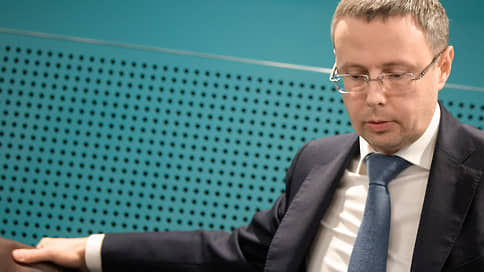The state order is losing its attractiveness – Newspaper Kommersant No. 176 (7377) of 09/23/2022
[ad_1]

High uncertainty due to sanctions, tougher rules of the game for public procurement participants and monopolization of the state order market repel businesses from this market, discussions at the All-Russian FAS conference “State Order – the Engine of Competition” showed. De facto, the key business support mechanism through guaranteed demand is becoming less and less interesting to entrepreneurs. There is no unity in the departments on the need for new indulgences for customers – but there are disputes about whether transparency or competition in procurement is a priority. Thus, the Ministry of Finance insists on the closure of data on public procurement and the extension of anti-sanction measures, while the FAS refers to the abuse of temporary rules, risks to competition and the danger of redistribution of markets. The service promises to send concerns to the White House – while the government supported proposals to extend the temporary rules.
In recent years, discussions at forums and conferences in the field of public procurement have quite predictably unfolded around the need to digitalize government orders, ensure transparency in the market and increase convenience for its participants – the contract system has become one of the most effective business support mechanisms due to many years of improvements. Meanwhile, temporary adjustments to the system, first in the context of the pandemic, and now unprecedented sanctions against the Russian economy due to the military operation in Ukraine, have begun to reduce the attractiveness of the state order and its budgetary efficiency.
The government, within the framework of anti-sanction amendments (46-FZ), scaled up the practice of non-competitive purchases from a single supplier (the government and regions can independently determine the cases of such purchases) and allowed state-owned companies not to disclose data on part of the purchases (see “Kommersant” dated April 4). Yelena Dybova, vice-president of the Chamber of Commerce and Industry, warned about the harmful effects of anti-sanction measures: “We understand the situation, we need quick solutions, but they should be followed by normal regulation.” In the meantime, according to her, the participation of businesses in procurement is becoming more difficult, and the rules on a single supplier “hardly reshape markets” and carry risks for competition – many counterparties cannot access procurement.
Business fears are shared by the head of the Federal Antimonopoly Service Maxim Shaskolsky. The FAS is concerned about the state of competition in the market: the average number of applications for one purchase is now 2.8 (3.1 even in the coronavirus 2021). According to 46-FZ, the regions signed more than 12,000 contracts worth 500 billion rubles with the only suppliers, including even in highly competitive markets, the head of the FAS noted – while for two months such purchases were not subject to accounting at all. At the same time, the Federal Antimonopoly Service receives requests from law enforcement agencies to verify the circumstances of concluding contracts with contractors without experience, without connection with the urgency of the procurement or sanctions. “FAS cannot positively perceive the right given to subjects to purchase anything and, most importantly, whatever they want from a single supplier,” Mr. Shaskolsky stated.
Meanwhile, as Deputy Finance Minister Alexei Lavrov said, the government has already supported the proposal of his department to extend anti-sanction measures in the field of public procurement until 2023. The Ministry of Finance admits that the volume of contracts with food suppliers has grown – up to 23% (in eight months of 2022) against 17% in 2021. But the department does not see any risks, referring to the “covid” experience – then the share of purchases from the supplier also increased by 7%. “Now we are in a similar situation – that is, in our opinion, there is nothing particularly critical right now,” Alexey Lavrov added. According to him, the state order should not be considered as the only mechanism for increasing the level of competition, but should ensure the speed and transparency of procurement. This position of the Ministry of Finance somewhat contradicts the function of the department to ensure budgetary efficiency and savings in procurement. Comparison of a similar situation with the “covid” experience in a surplus year of 2020 also looks dubious given different perspectives – in the context of the announced mobilization, the government will need to allocate additional funds for social support programs.
The FAS announced its disagreement with the Ministry of Finance and promised to report the abuse of anti-sanction regulations by customers to the government.
[ad_2]
Source link






